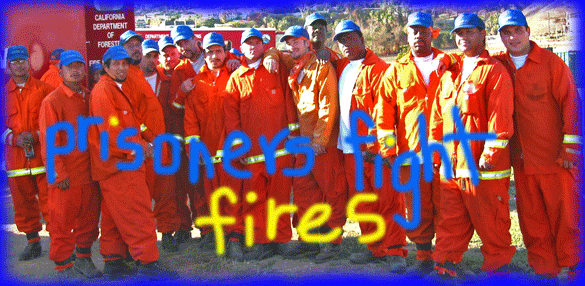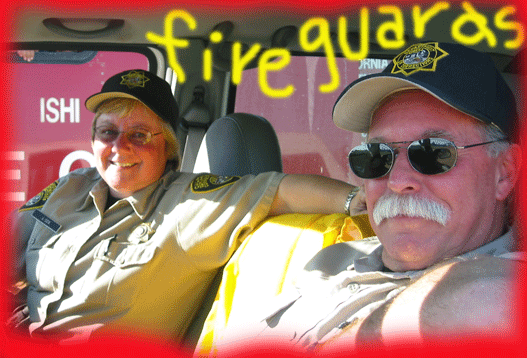
The California prison system has been in such bad shape in so many ways for such a long time, it’s almost shocking to find one element of the system that seems to be working. That element is the fire camps.
The California Department of Corrections and Rehabilitation runs 42 adult fire camps-–37 of them with the California Department of Forestry and Fire Protection, five more with the LA County Fire Department. Upwards of 4,400 inmates work on 200 fire crews that log in three million person hours a year battling wildfires, and other emergencies. Several of those crews worked this past weekend’ to help contain the Corral fire in Malibu.
The fire camps seem to succeed on multiple levels. Their inmates are less likely to return to prison. Correctional officers like working in the camps. And, instead of costing the state of California more than $42,000 per offender per year, as is the case inside prison, fire camp’s per inmate price tag is around half that or less. Moreover, with the work they provide, the fire camp inmates actually save the state money—approximately $80 million a year. Not exactly chump change.
Ken Cox and Janette Cox (who are neither married nor related to each other) were two of the correctional officers who accompanied the firefighting crews from Camp Ishi in Northern California’s Tehama County, to the Malibu base camp. They both told me they are ardent fans of the program.

“The camps are the best system in the CDC,” said Ken. “The inmates get out a place like Ishi with real skills that they can take into the world after they’re released. We have guys who go out and get jobs as Hot Shots in the Federal system afterwards.”
Sergeant Dan Billeci, who also came with the crews from Camp Ishi, agreed. Even those who don’t pursue firefighting, he said, gain a sense that they can succeed at something, “which means they’re less likely to come back to the system”
Not everyone succeeds, of course. “A lot of guys come back to us,” said Ken. But fewer fire camp graduates stay stuck in the revolving door than the 70 percent who return to California’s prisons after they’re paroled.
Both Coxes also say that they like working at the fire camps, in part, because the relationships between correctional officers and inmates are far less adversarial then elsewhere in the corrections system. “In the camps they come and talk to us,” said Janette. “Whereas in prison,” said Ken, “they don’t because they’ll be seen as snitches if they talk to us to much.” And prisoners often need to talk, said Janette. “It’s healthier.”
The only problem with the camps, according to the Coxes and Sergeant Billeci, is that most of them are rarely full. This is not, the officers say, for lack of applicants. “Lost of people want to come to the camps,” said Ken. But the bar for entry is set so high that many of those who might thrive in the firefighting program are prohibited entry.
In general, the rules are as follows; the applicants must be physically fit (sensible) and can have no history of arson (Duh!), or sex offenses (okay, good call). But even those in for low level drug offenses often don’t qualify if they have a violent or a gang crime somewhere in their pasts. Yet sometimes those with no violence in their past are kept out too. “The selection system is very inconsistent,” said Ken Cox.
Certainly appropriate caution must be used in choosing applicants for the fire camps. Everyone wants to protect the program. Yet, the officers suggested in the course of our conversation that, in a state with catastrophically overcrowded prisons, maybe we could design a more responsive selection criteria so that guys (and women) who might otherwise succeed aren’t routinely rejected.
Put another way, if we want to maximize the program’s potential to save money and rehabilitate lives, we need to open the fire camps’ doors a little wider.

The program makes sense to me. So do chain gangs.
And sometimes inmates who does not deserve it gets accepted. I was assulted and held captive by gunpoint by a guy who recently got accepted into firecamp. He had harassed, stalked, threatened me, vandalized my property and stolen from me as well, so the whole no violent past is not entirely true.
Just saying.